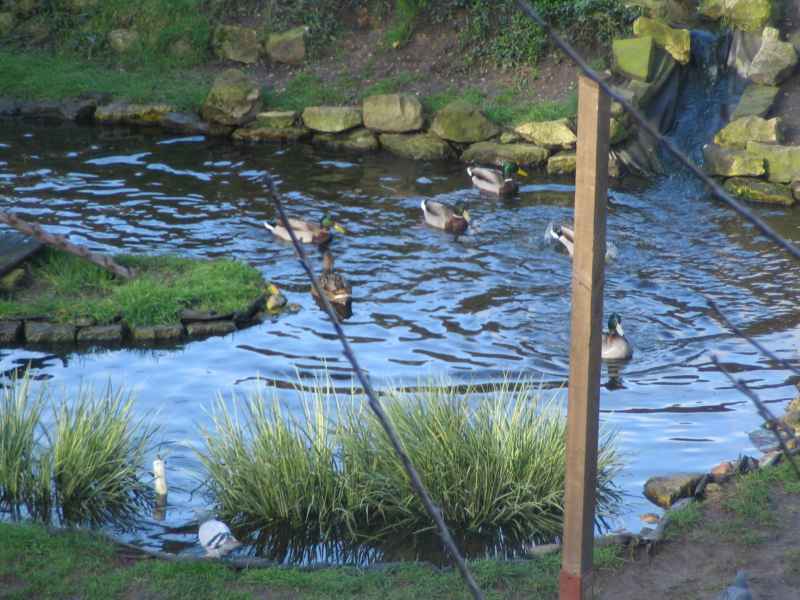
Latest update: 20th May 2008
The ducks returned in 2007, built a nest
(but not in the new duck nesting box), laid seven eggs and incubated them for
three weeks.
But the island and nest were continually disturbed by other
ducks and the crows, some eggs got stolen, others broken, and only one
egg hatched
with the duckling only surviving a short time.

First duck visit of 2007 in early March, one female and six males, the most I've seen
here in 10 years. Only six ducks in the photo,
the other rogue male had been chased on the lawn.
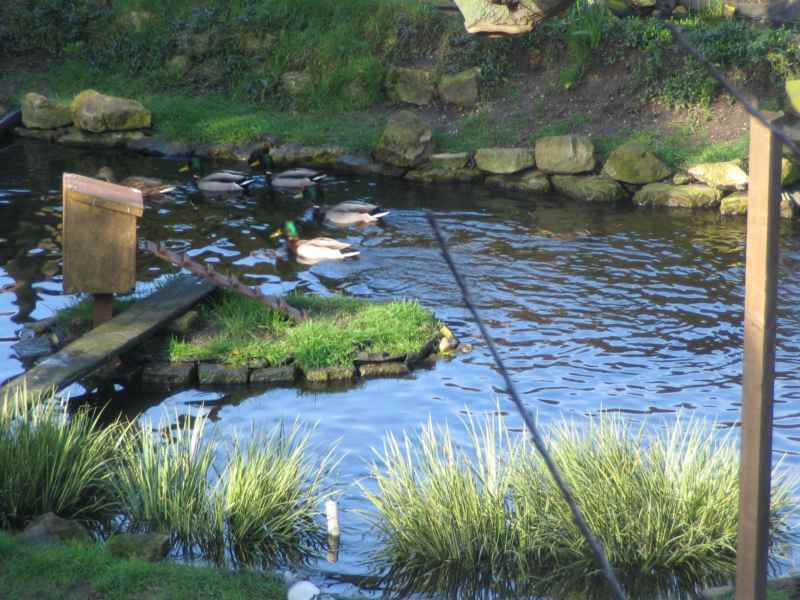
Four of the males were probably juveniles since the female tolerated them. The new duck nesting box added in 2006 but never used.
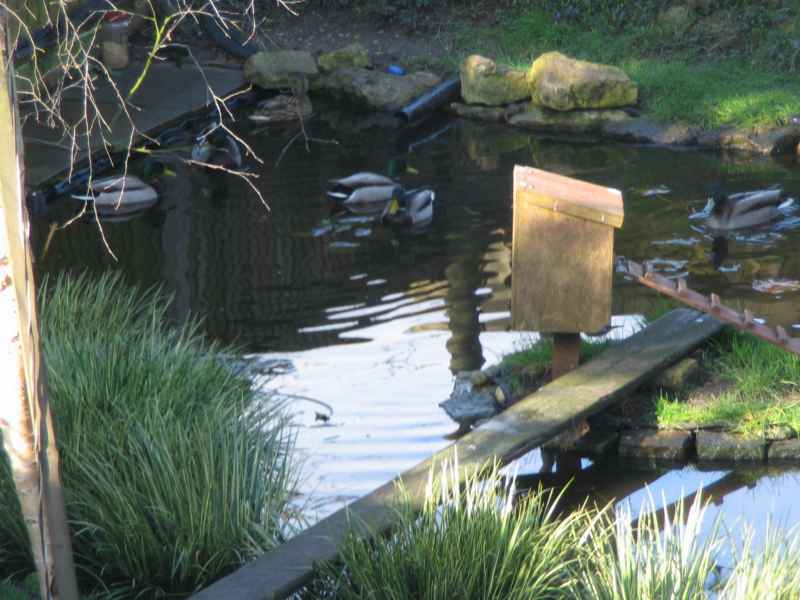
Ditto.
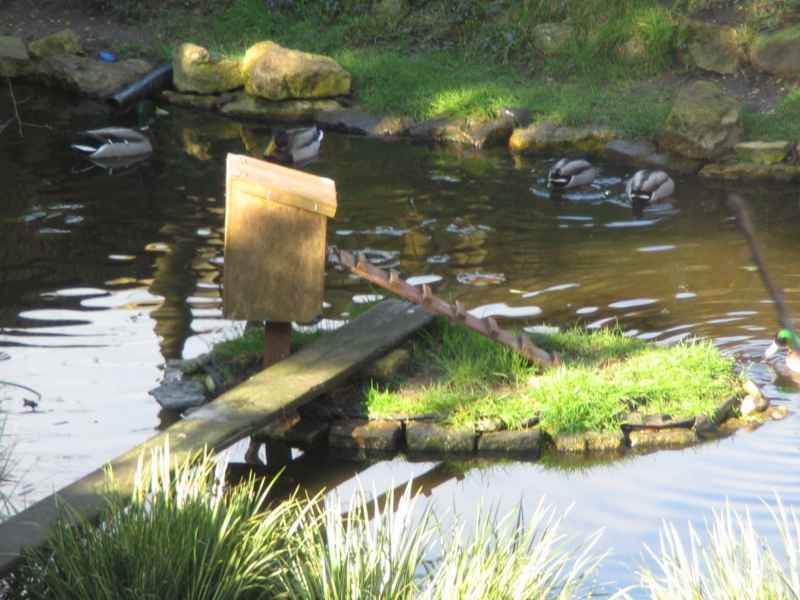
Ditto.
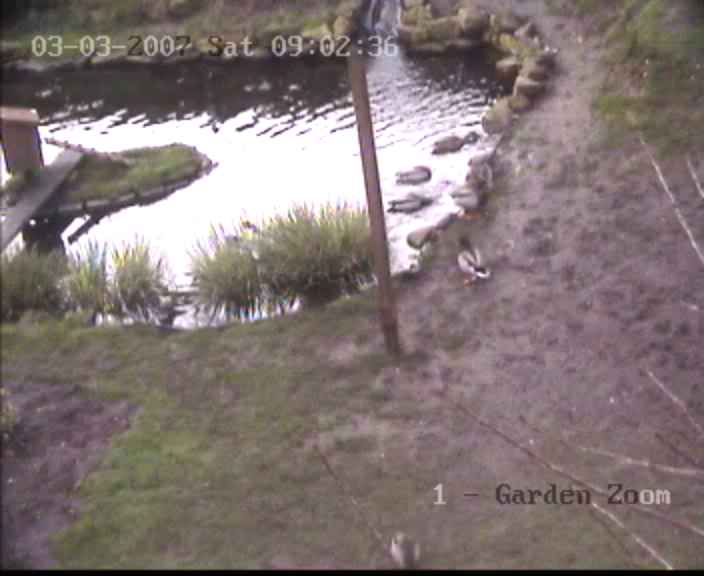
The rogue male half way down the lawn, from the CCTV camera, which was positioned to watch foxes not the pond.
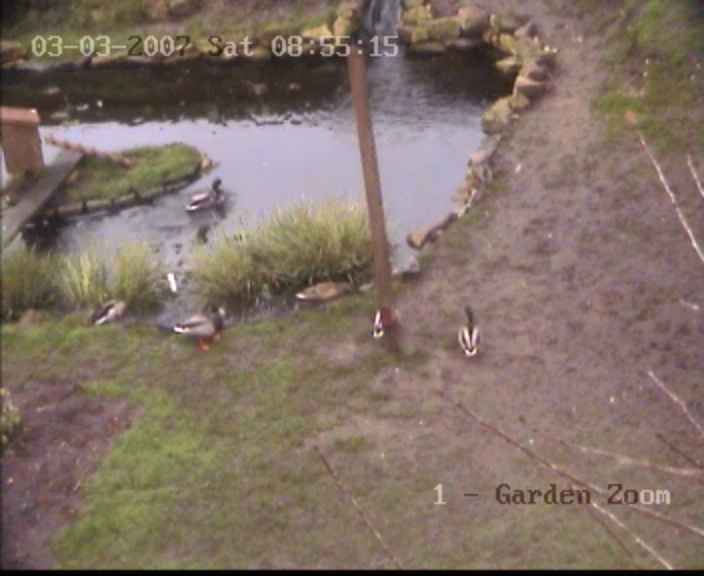
They were all chasing around the lawn. This was a one-off event for about an
hour, the five males have not
been back again.
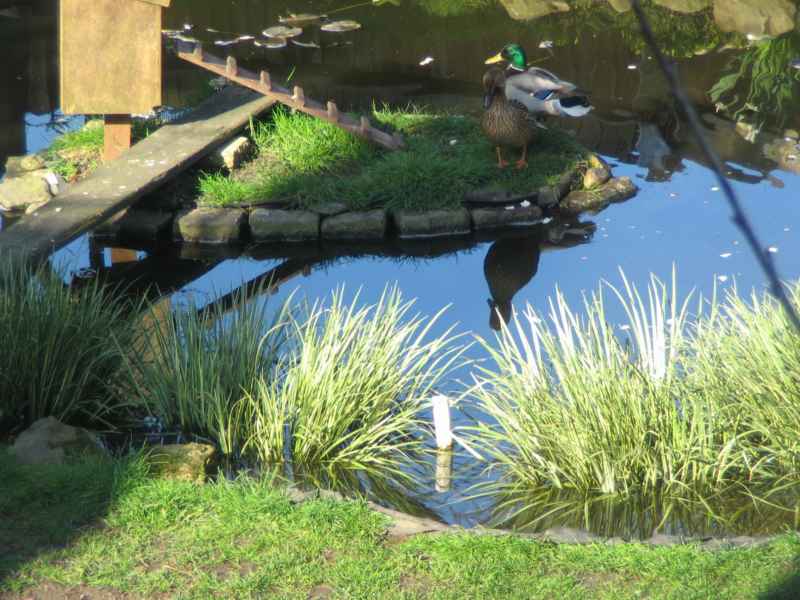
The mallards examining the new duck nesting box, and my bridge to the island, in March 2007.
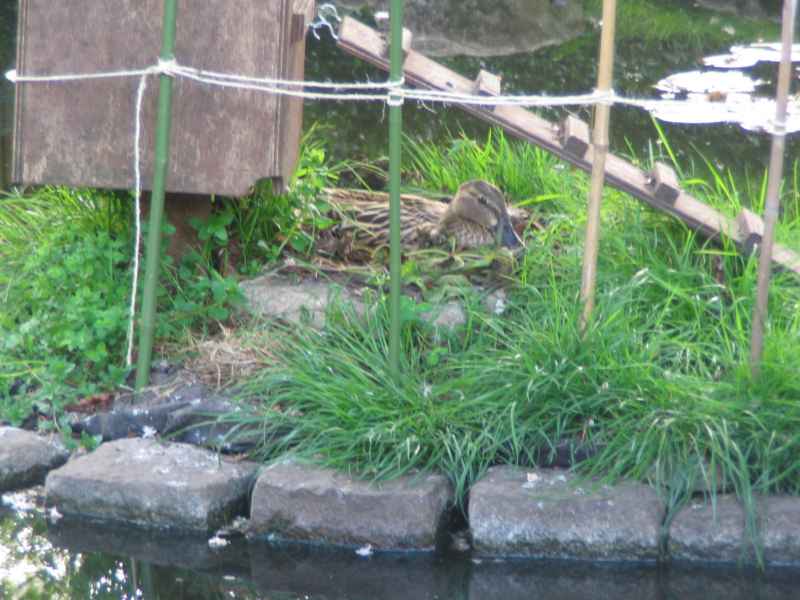
But she ignores the nesting box, and builds her nest under the ramp. At least the
box provides some shelter, and will make it harder
for a fox to jump onto the island, which is also the purpose of the canes and string. Did not have time to make it any neater, since
the
duck had taken up residence. The first egg was laid on 14th April 2007, but I did not see any more until 22nd April when there were three
eggs in the nest.
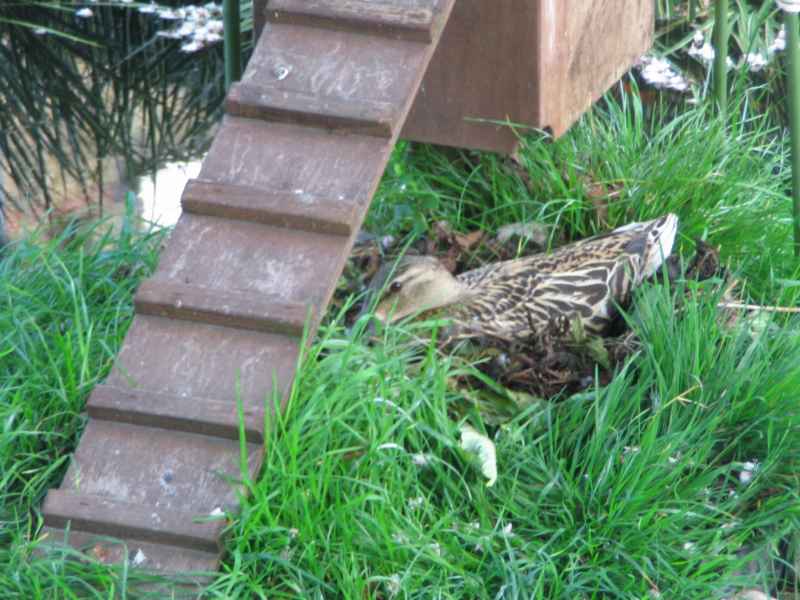
The duck on her nest, still laying eggs so no feathers in the nest yet, just lots of
leaves I left on the island. Once she starts nesting,
the male loses interest and flies off.
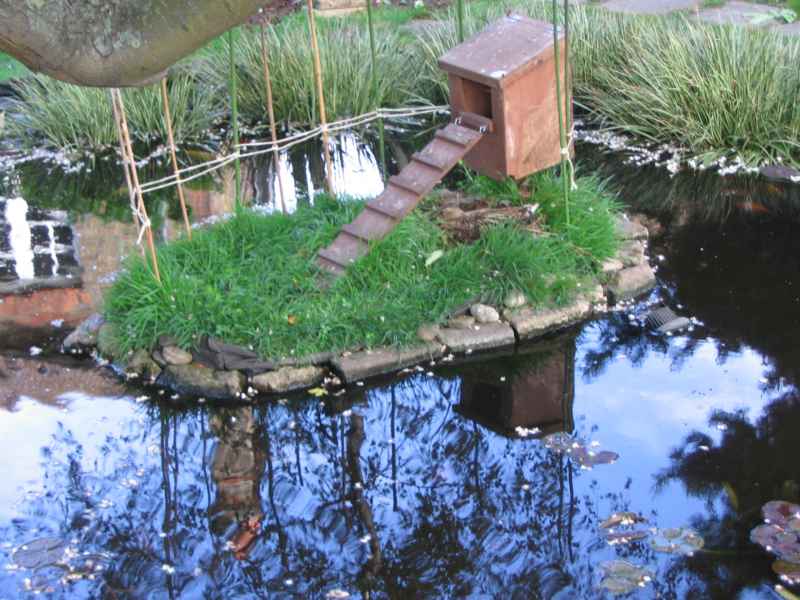
Wider shot of the islands and nest. I did put some canes on this side of the island one
afternoon while she was away, but she would
not go onto the island, so I had to remove them in the evening.

Wider view of the pond, island and nest.
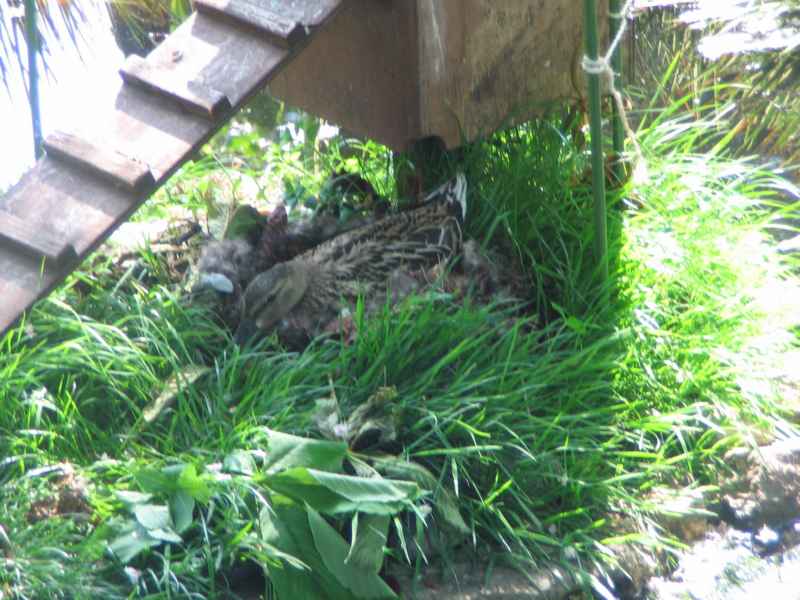
She has started to remove her feathers to allow closer contact with the eggs.
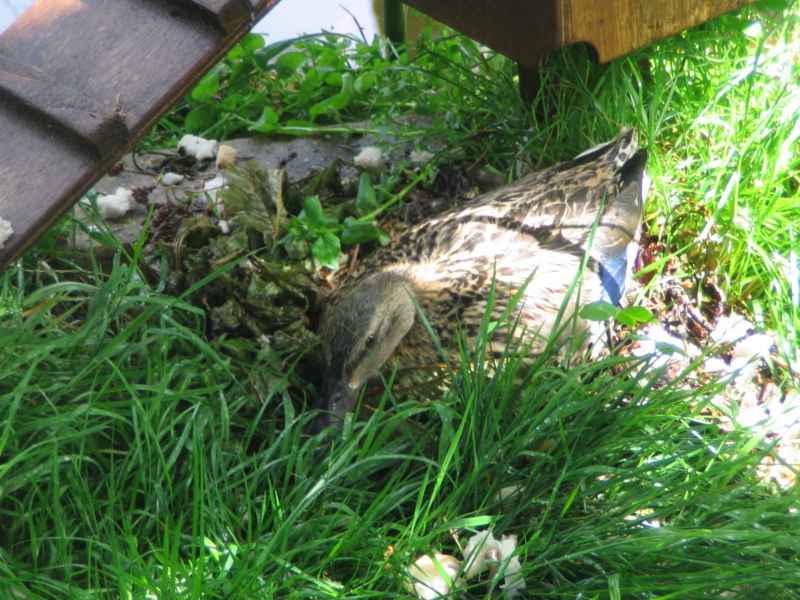
Ditto.
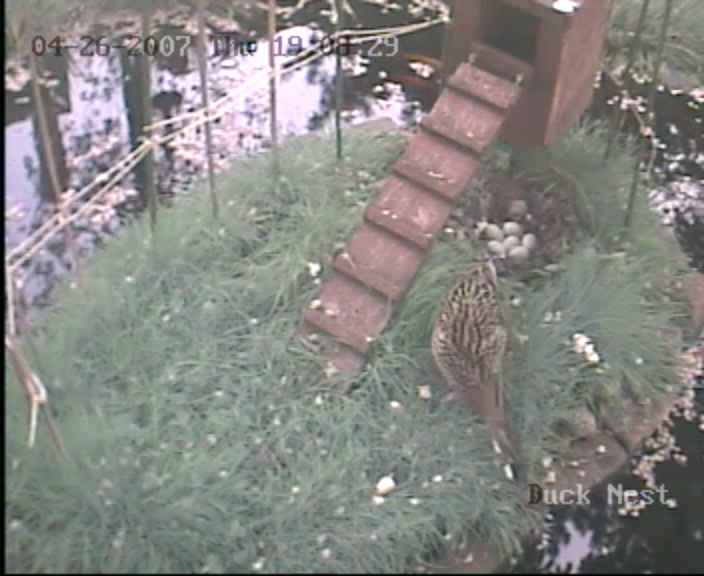
Leaving the nest for a drink and food, seven eggs in the nest, she was still
leaving at dusk and I had to drop
leaves onto the nest to hide the eggs, she was back at dawn.
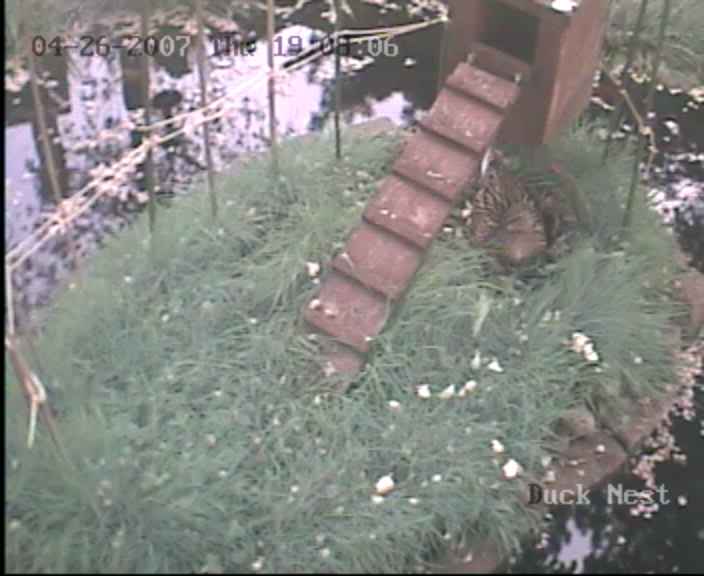
Ditto. She started incubating full time on 28th April 2007, and has not left the
nest since except for 10 to 15 minutes
each morning just before dawn (4.50am) when the she goes for a swim and to eat duck food from a shallow shelf.
She does eat bread I throw onto the island, and the pigeons eat the bread out of her reach, not ideal but there's no
way to get proper duck food onto the island.
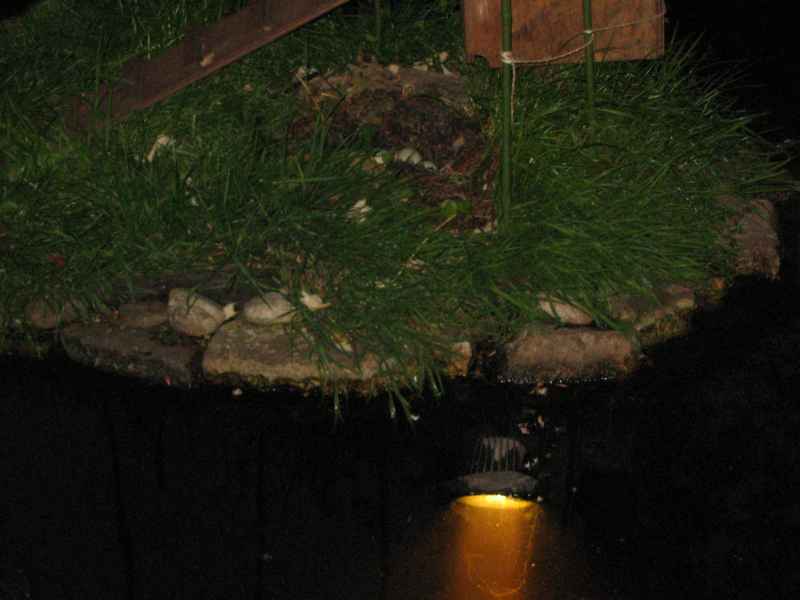
On 9th May, the male flew into the pond at 8.10pm, and for the first time in 12 days the female left her nest while I was awake,
so I took a picture of the eggs. She swam with the male for about 10 minutes before getting back onto the nest. The photo also
shows one of the underwater lights.
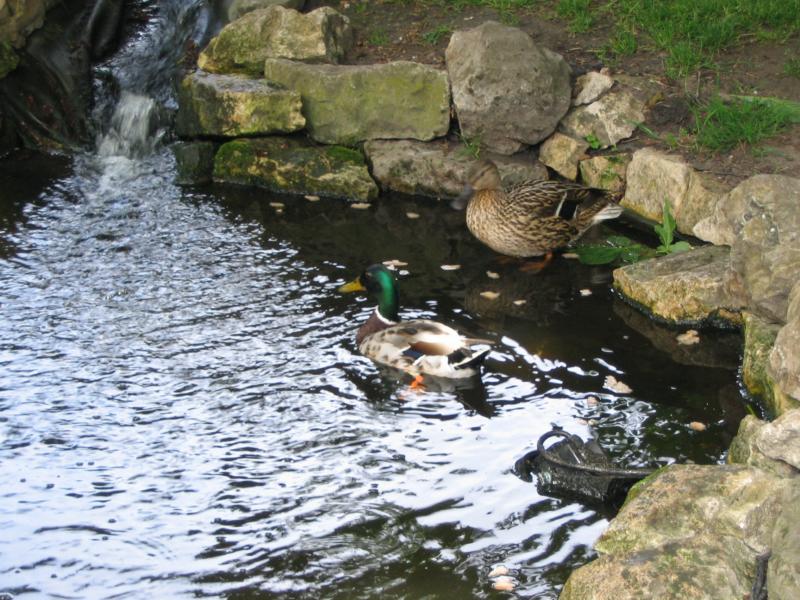
A new pair of mallards arrive in the pond, very hungry.
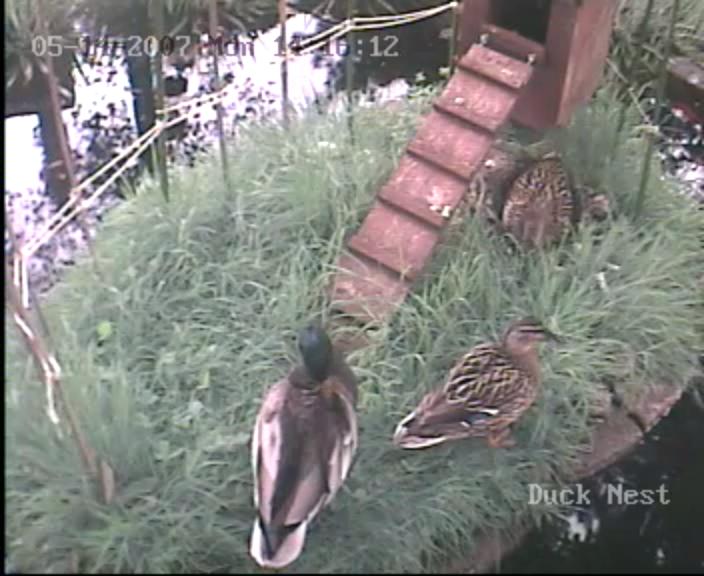
Pictures from the CCTV camera. The two new mallards are looking for bread on the island. This is the first time since
ducks started visiting the pond there have been two females in the pond at the same time.
The nesting female does not
want to be disturbed.
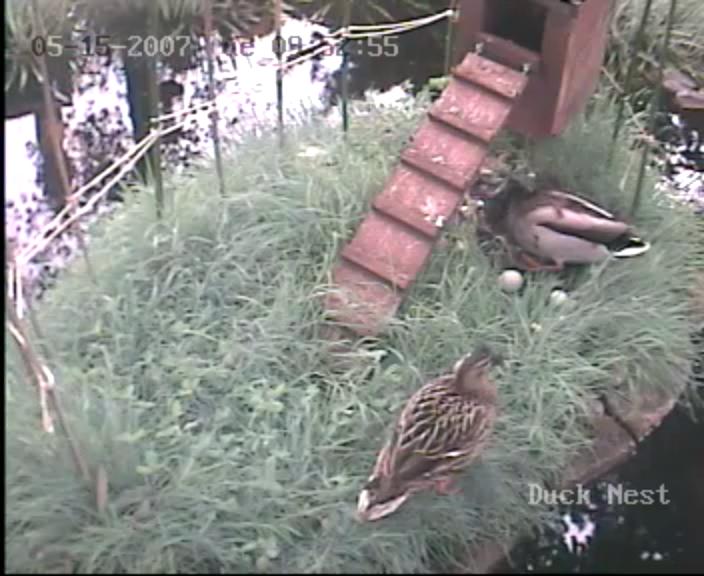
The new male mallard forces the nesting mallard off her nest, there were nine eggs.
He disturbs the eggs
looking for
food in the nest. Four eggs are removed from the nest, and rolled around the island, before I realise what
is happening
and frighten the new ducks away.
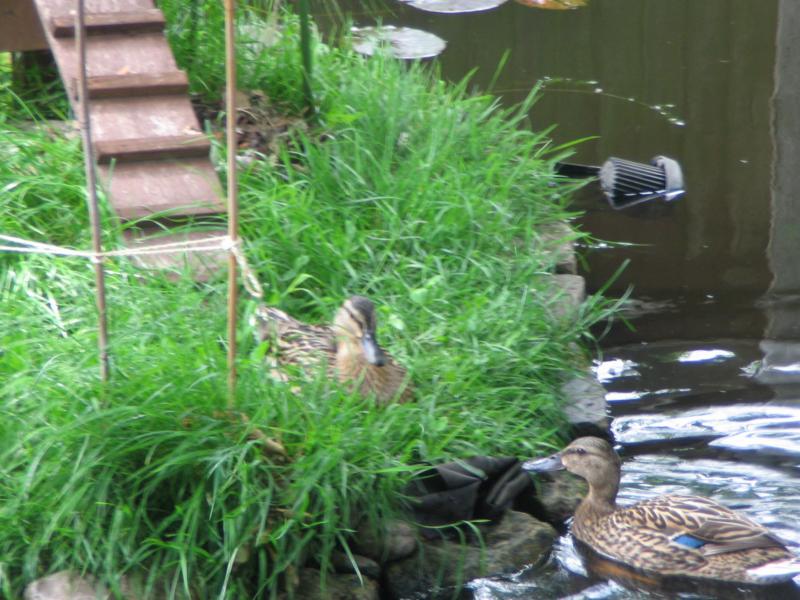
The following day the new male keeps away from the island, and the two females seem to get on together.

Nesting mallard on the right, visiting mallard on the left, spent most of a day sleeping quietly, and the male did not visit the island.
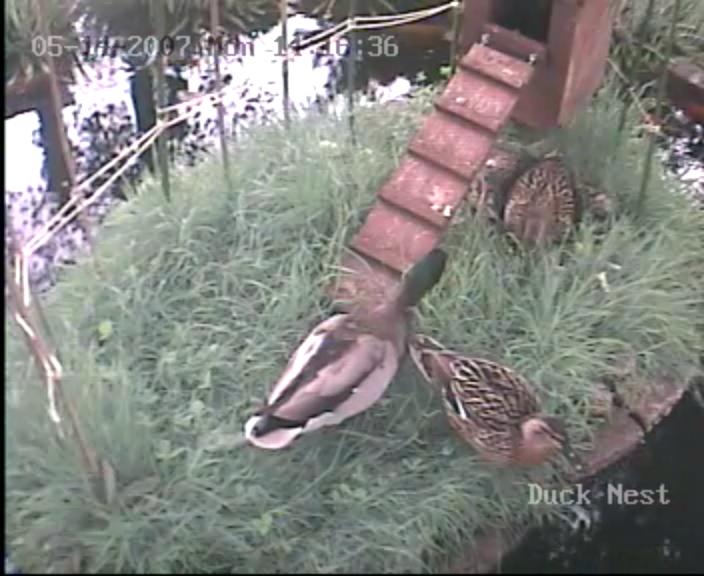
The following day the male does start looking for food on the island again.
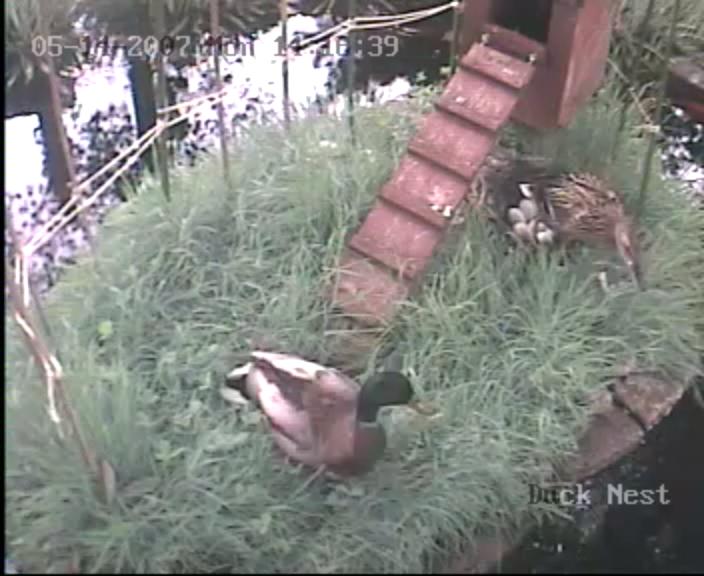
And forces the nesting duck off her nest again, I frighten the visitors away and
stop feeding them to try and discourage
them from visiting.
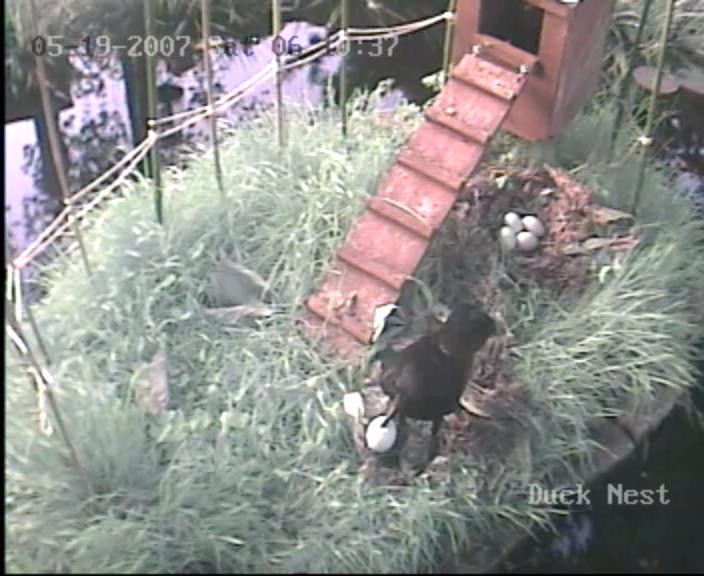
But the visiting mallards return early in the morning,
19 May 2007, forcing the nesting duck to fly
away.
The allows the
crow to steal
first one egg from the nest.
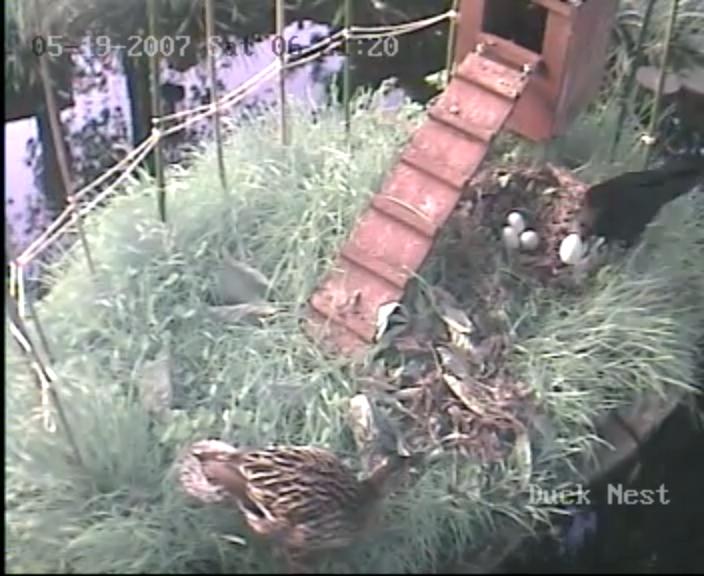
And shortly afterwards a second egg is stolen. The visiting female watches.
The nesting duck always shoos the
crow away. I arrive at the pond shortly after this photo and guard the nest until the nesting duck returns. The
following morning the crow steals a third egg before I get to the pond. The female flies off with a fourth egg about
an hour later, probably cracked due to being rolled around the island. I then start getting up a 5.30am to guard
the remaining three eggs.
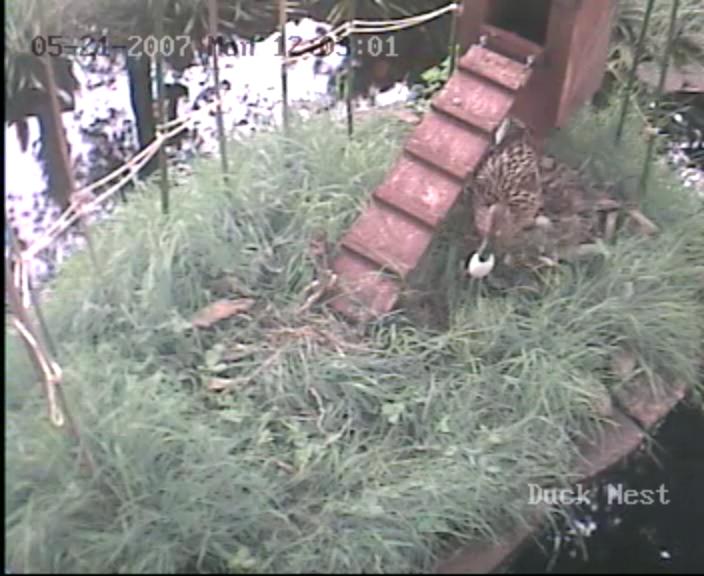
Two days later, 21st May 2007,no more eggs lost, but the nesting female removes one cracked egg and
places it on a pond shelf,
where the crow finds it shortly afterwards.
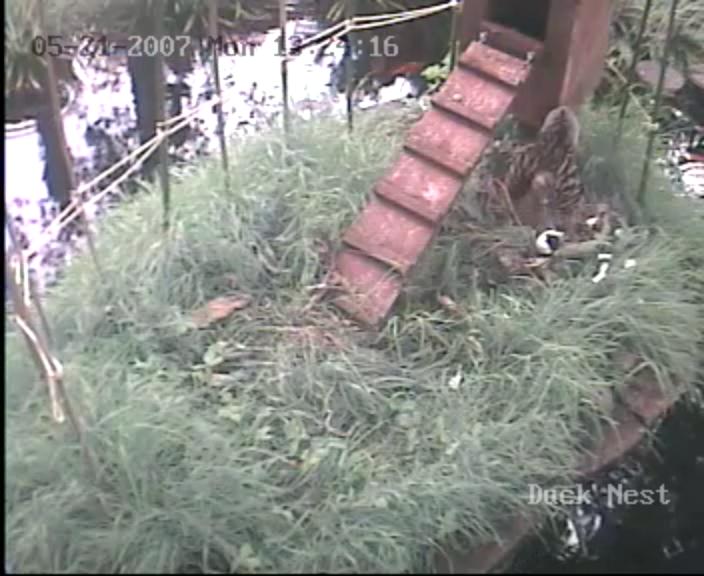
An hour later, she cracks open the second to last egg.
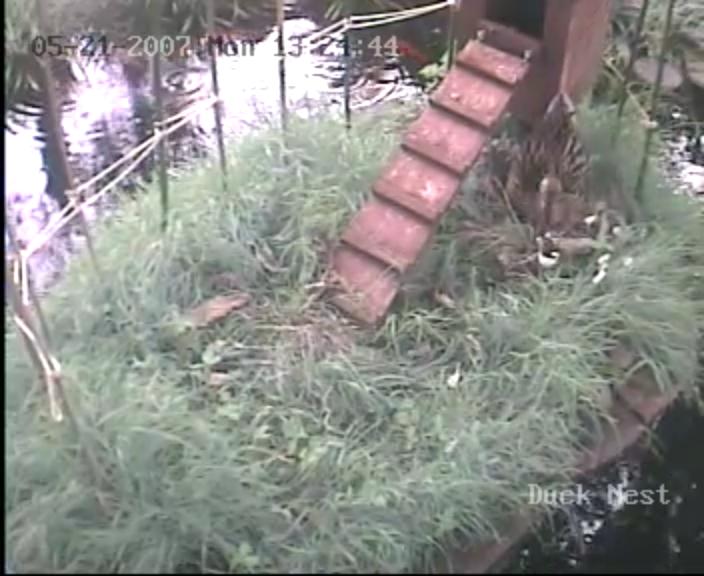
A duckling is born on 21st May 2007, but dies shortly afterwards. I removed it the following
morning. Possibly another cracked egg
or she helped it too soon, this was the 23rd day after she started incubating.
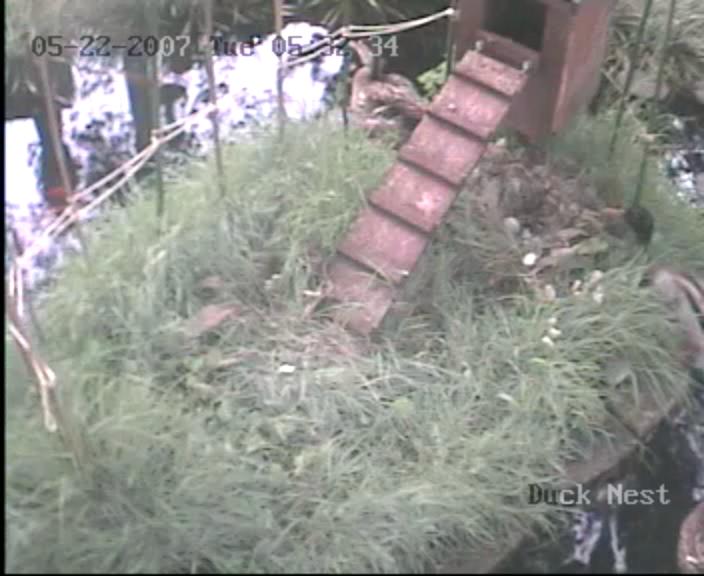
The following morning the visiting pair of mallards are back, and force the nesting
female off the nest, but I arrive
shortly afterwards and wait until she returns to the nest, so the last remaining egg is safe. Three days later, she is still
incubating the last egg during the day, but has started leaving the nest at dusk and returning in the early morning with
her mate, but the nights are very warm. She spent a few more days
sitting on the last egg, but eventually left without
it hatching and it had disappeared when I looked on the island. It had probably
been damaged being rolled around
the island.
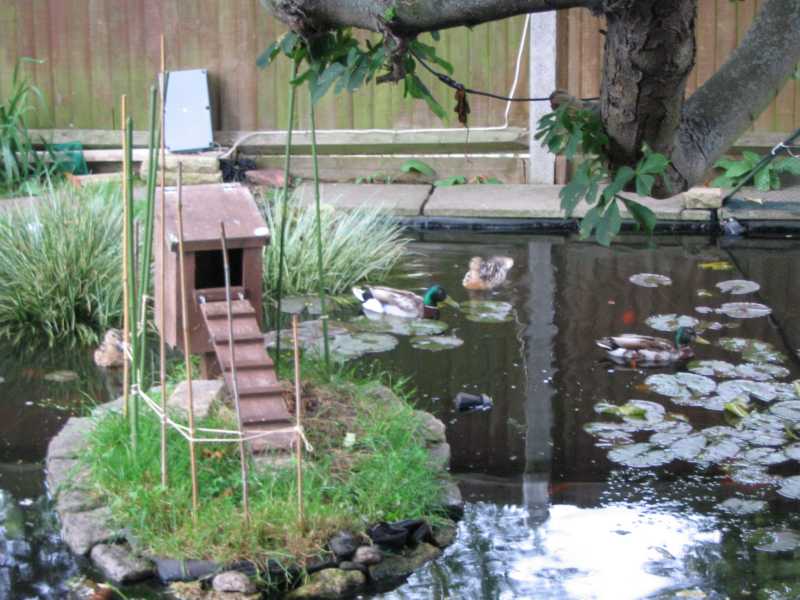
Things settled down once the nest had been abandoned, 14th June 2007, she
started flying around with her mate again, and two
other pairs of ducks starting visiting the pond. Very unusual to see two pairs of
mallards together at the same time, without any fighting.
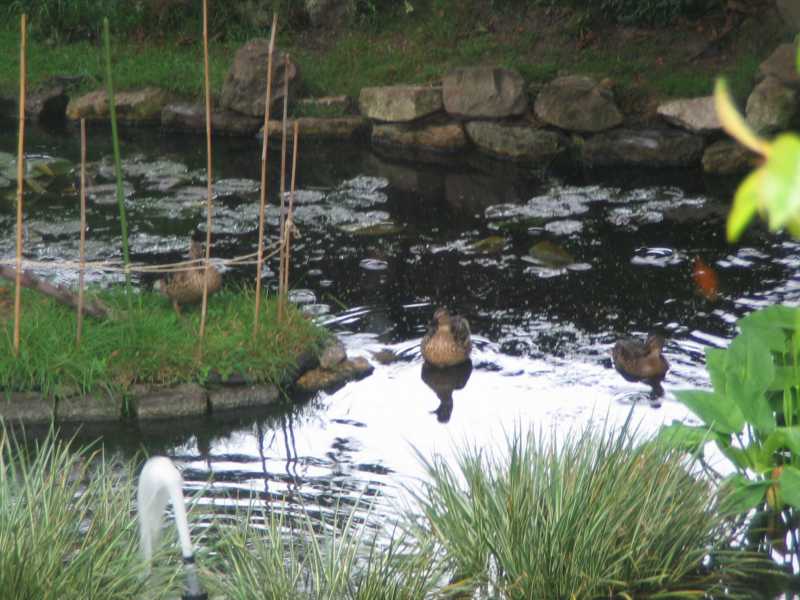
A third female mallard arrives, the
first time in almost 10 years there have been three females at the same time.
This was 18th June 2007, and duck visits ceased for the year shortly
afterwards. Some years visits continue into July.
All photos and text on this web site is © Copyright 2011-2022
www.croydonducks.co.uk and may not be reproduced, copied or linked
without prior written permission. All rights reserved.